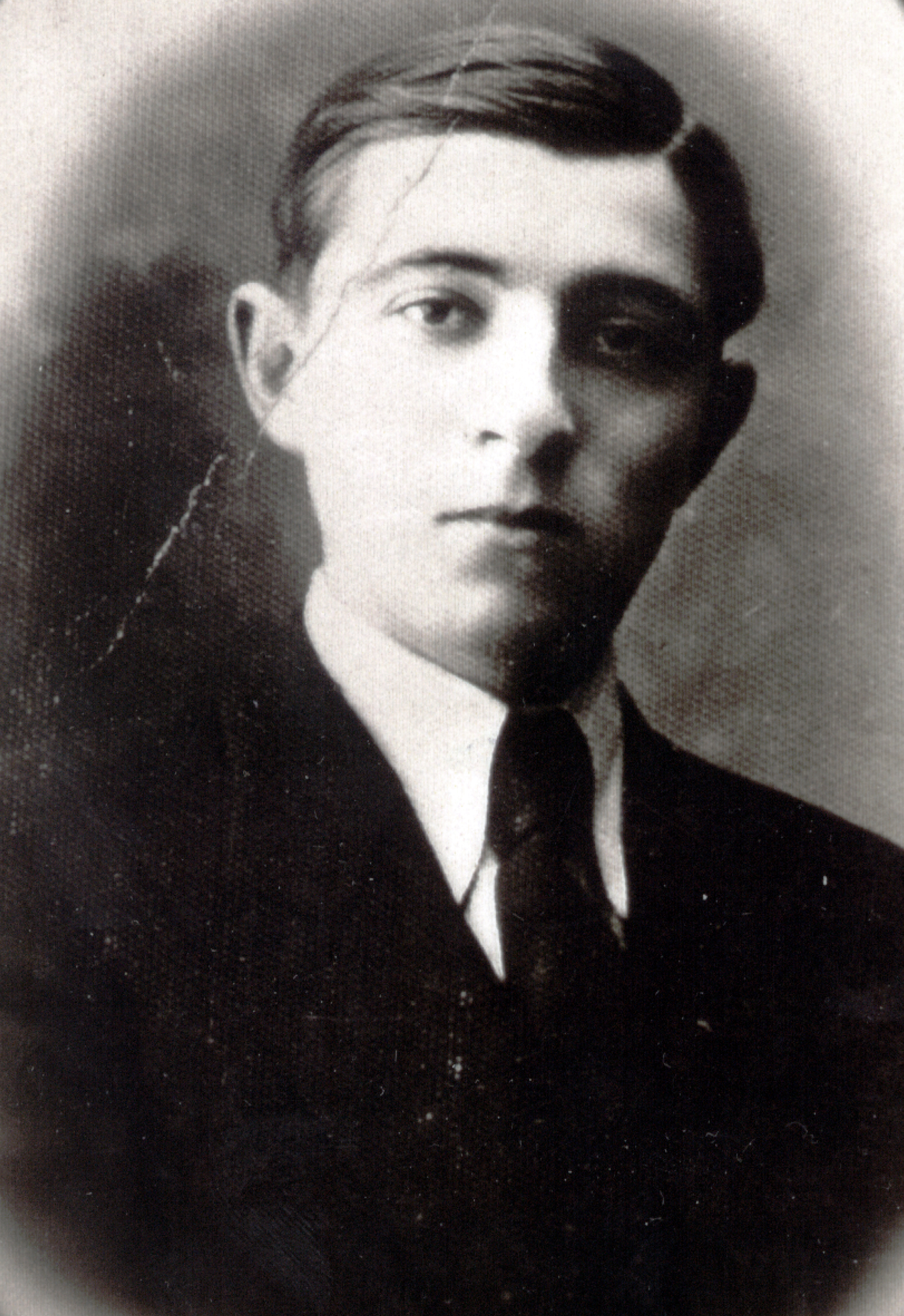Joseph Fukelman
This is a picture of Joseph Fukelman, the son of my father's older sister Adel Fukelman, nee Trachtenbroit. The photo was taken in Briceni 1935. I got this picture from my cousin Dusia.
My grandparents' on my father's side Motel and Pinkhas Trachtenbroit had seven children: four sons and three daughters. I knew them all. Their older daughter Adel - her Jewish name was Eidl - was born in 1890. My father Aron followed in 1893. In 1895 the twins Jacob and Rieva were born. Tsylia followed in 1898. The next child, Grigory, was born in 1902, and the youngest, Abram, followed in 1905. My grandfather wanted his children to get a good education. At the age of nine they went to a Russian grammar school, which they finished successfully.
After finishing grammar school Adel married Boris Fukelman, a Jewish man. Their son Joseph, who was called Yuzik in the family, was born in 1917. Adel had a hard life. After the Russian Revolution of 1917 Adel's husband left for Russia with Adel's younger sister Rieva. Since then nobody in the family was allowed to mention Rieva's name. Adel couldn't remarry since she wasn't divorced. Adel and her son lived with her parents. After finishing grammar school Yuzik became a violinist.
In the middle of July 1941 the Romanian commandment ordered all Jews to come to the main square. My parents and I, my grandparents, Adel and her son Yuzik and my mother's brother Joseph, his wife and two daughters went there. All Jews were ordered to go in the direction of Sekiryany [50 km from Briceni]. My grandparents could hardly walk. It was hot and we were desperate of exhaustion and fear. In Sekiryany we were ordered to stay in abandoned houses. We stayed there for a while. My mother gave away her jewelry in exchange for food. Later we continued on our way until we reached Transnistria, across the Dnestr River.
We reached Kopaygorod, in Vinnitsa region, 150 kilometers from home. The Romanians took the adults to work. My parents began to earn money by replacing shoemakers or tailors, who could make money working at home. These people paid other inmates 1 mark per day to replace them at work. Adel's son Yuzik also made money by replacing other inmates at work. In winter 1942 the Romanians were taking people to the wood-cutting site. Yuzik replaced another worker. When the workers returned to town after work, Yuzik was found frozen to death on a cart.
